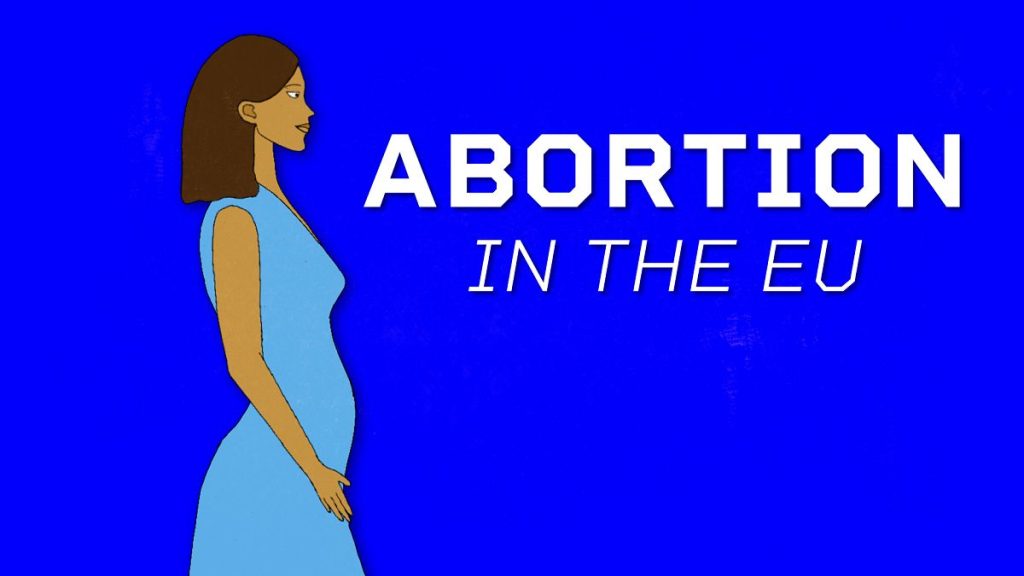The “My Choice, My Voice” campaign, a European citizens’ initiative, has reignited the debate surrounding abortion access within the European Union. This campaign, having gathered over one million signatures from fifteen member states, calls on the European Commission to propose legislation ensuring safe and legal abortion access for all EU citizens regardless of their nationality or residence. This initiative comes at a time of heightened concern about potential rollbacks on abortion rights, notably influenced by developments in the United States. The campaign underscores the ongoing tension between national sovereignty and the potential for a unified EU approach to fundamental rights, particularly regarding reproductive healthcare. The Commission is obligated to respond formally to the initiative, a response that could range from a full legislative proposal to a simple acknowledgement.
While most EU countries have legalized abortion, generally up to 12 weeks of gestation, Poland and Malta maintain significantly stricter laws. Poland permits abortion only in cases of rape, incest, or threat to the mother’s life, while Malta only allows it in the latter circumstance. Even in countries where abortion is legally permissible, access can be hindered by physicians exercising their right to conscientious objection. This variation in abortion access across the EU has spurred debate about whether this fundamental right should be governed at the EU level, ensuring uniformity across member states, or remain within the purview of national legislative competence, respecting individual countries’ cultural and ethical considerations.
The potential transfer of abortion legislation to the EU level has elicited diverse perspectives. Supporters argue that access to abortion is a fundamental human right, essential for gender equality and women’s autonomy. They believe that EU-level legislation would guarantee consistent access to safe abortion services across the bloc, eliminating disparities and protecting vulnerable women. Conversely, opponents argue that abortion is a morally complex issue best addressed at the national level, respecting each country’s unique cultural and ethical landscape. They fear that EU intervention would infringe on national sovereignty and impose a uniform solution on a diverse population with varying beliefs. This tension between individual rights and national sovereignty is central to the ongoing debate.
The European Parliament’s non-binding resolution to enshrine access to abortion in the EU Charter of Fundamental Rights further exemplifies this struggle. If incorporated into the Charter, this right would become legally binding in all member states. Advocates for reproductive rights view this as a crucial step toward ensuring equal access for all women within the EU, protecting them from restrictive national laws. Those who oppose abortion, however, see this as an overreach of EU authority and a disregard for the ethical concerns surrounding abortion. They maintain that the sanctity of life should be prioritized and that abortion should not be considered a fundamental right.
The World Health Organization (WHO) provides guidelines on safe abortion practices, recommending that women should not face unnecessary obstacles when seeking abortion within legal timeframes. These obstacles include mandatory waiting periods, compulsory counselling, or conscientious objection by healthcare providers. However, several EU countries still impose such requirements, hindering women’s access and potentially driving them towards unsafe, illegal abortions. The WHO’s stance underscores the importance of prioritizing women’s health and safety in abortion legislation and highlights the potential dangers of restrictive practices.
The discussion around abortion access in the EU is multifaceted. It encompasses ethical, legal, and political considerations, involving individual rights, national sovereignty, and public health. The “My Choice, My Voice” campaign, coupled with the European Parliament’s resolution, has placed this issue firmly on the EU agenda. The European Commission now faces the challenge of navigating these complex issues to formulate a response that addresses the concerns of all stakeholders. The future of abortion legislation in the EU remains uncertain, dependent on the Commission’s response and the subsequent legislative process. This debate underscores the ongoing evolution of the EU’s role in safeguarding fundamental rights and its interaction with the diverse values and beliefs of its member states.










